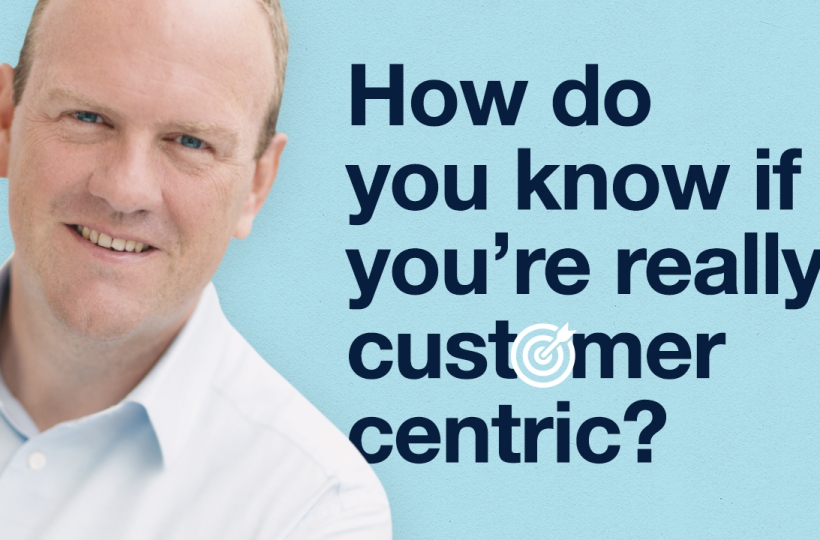Three questions to find out if you’re really customer centric?

How do you react when you have an opposing interests with your client?
The first question I ask them is “how do you react when your own interest and that of your customer oppose each other”. This type of situation happens more often than you would care to think. Let me illustrate with an example: imagine a bank customer with a sleeping account which hasn’t been used for the last five years. In spite of the lack of activity, they pay an annual fee for the support and maintenance of that sleeping bank account.
How do you deal with that as a bank, if you have a large pool of that type of customers ? Will you keep silent and just cash in that easy and effortless money? Or will you actively contact these clients, telling them “Hey, you have a sleeping account, we need to talk”. And if you do, will you ‘just’ suggest that they shut down the account because they receive absolutely no value for the money they spend? Or will you take a step further and say “Hey, you’ve been paying us for the last five years while we didn’t deliver you any value. We’re going to pay you back for that.“
From the first to the second scenario, you see the level of customer centricity building up. And that’s a mindset which I believe is crucial in order to understand how customer centric you are. So, if you’re not sure about it, just think hard about how you and your company deal with opposing interests. Do you choose the customer’s side? Or your own?
What’s your mindset priority: fix it or find it?
The second question I ask those who want to know how customer centric they are is this: “What’s your mindset when a problem occurs, when something goes wrong in an interaction between you and your client?”
There are basically two types of reactions in case of problems with customers. Do you have a “let’s fix it” mindset? By which I mean: are you set on fixing the problem as soon and as best as you can? Is that your key priority at that moment? Or – reaction number 2 – do you have a “let’s find out who’s fault it is” mindset? These two very different reactions firmly define how customer centric you are.
Now, we all know that the majority of the organizations will try to look for the person who made the mistake. They will want to know if someone inside their own organization messed up or if the customer did something wrong. And based on that information, they will act. But customers don’t really care about that. They just want a solution to their problem, seeing that they (will) pay you good money. And yes, afterwards you can investigate what went wrong, so that you can improve the process and avoid these types of problems in the future.
So, are you focused on “fixing it” or “finding” it first? This is a great way of finding out how customer centric your attitude is.
How empowered are your employees to solve problems?
My third and last question is this: how empowered are your employees to solve problems? We’ve all been in the situation where you’re discussing a problem with an employee who, instead of actually helping you, tells you they will “ask their manager”. And you know that that’s the sentence that you don’t want to hear. You don’t care about talking to a manager, right? You just want the problem to be solved. And you want the person who is sitting in front of you to (or that is talking to you on the phone) to have the capacity and the empowerment to make that happen.
In some organizations, people are not allowed to do anything. In others, employees are trained and facilitated to solve a problem, whatever it takes. It makes so much more sense: they know the organization through and through and understand what the customer in front of them expects. It’s just a waste of time to draw someone who does not have all the information and background in to the conversation.
So that’s it: three deceivingly simple questions. But they will help you reach a much clearer view on just how customer centric you are. So, next time you want to know how you can become (even) more customer centric, keep this trio as a mantra in your mind:
- How do you deal with opposing interests?
- What’s your mindset when it comes to mistakes: fix it or find it?
- And how empowered are your employees to solve customer problems?